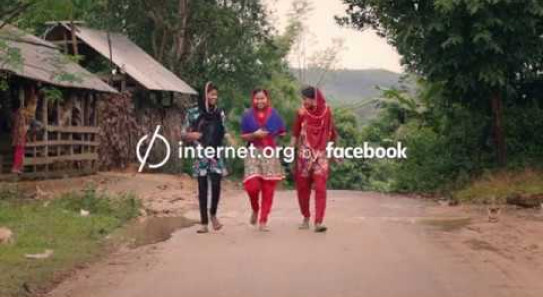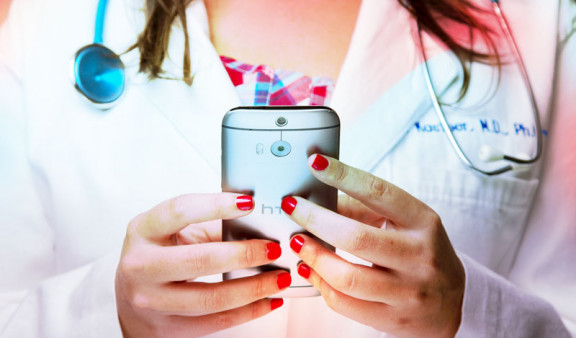
Connected health in Asia: Four thriving companies to follow
The adoption of digital in the health sector has seen exponential growth in Asia following the Covid-19 pandemic.
Numerous innovations in this area had begun to emerge in recent years, in order to make healthcare more accessible in countries where Internet coverage is spreading ever further and rural areas have shortages of doctors. Digital can also be used to address other issues, such as the cost of services and taboos that remain widespread. From remote consultations combined with AI to testing robots and therapeutic applications, we look at some of the many connected health solutions that can be found across Asia.
Four connected health solutions that caught our attention
In China, Ping An Good Doctor is opening access to remote consultations
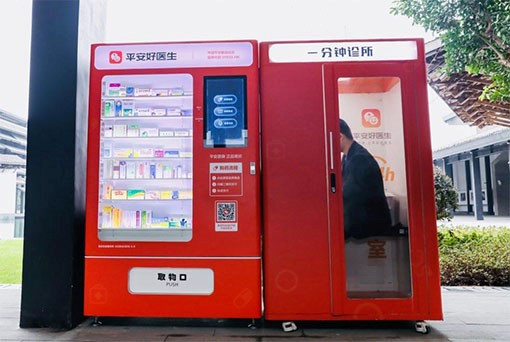
Remote consultation booth and medicine vending machine by Ping An Good Doctor in China - Source: AndroidPit
In response to encouragement from Chinese policies to digitise healthcare services, in 2019, the banking and insurance group Ping An set up a remote consultation service that uses dedicated booths. Named Ping An Good Doctor, the service attracted 38 million euros of investment through the development of 29 partnerships with national industry giants (in the medical, banking, insurance, telephony, etc. sectors), in order to establish its connected health ecosystem.
Patients enter what looks like a photo booth and describe their symptoms to a "virtual doctor". Based on AI, the doctor establishes a diagnosis by analysing all of the data collected: the patient's voice, symptom descriptions and medical history. Remotely, a doctor approves the final diagnosis and prescribes medicines. Next to the booth, the patient can pay for and receive their medicine using the vending machine or place an order on the Good Doctor app. In 2019, it already had more registered users than any other Chinese remote consultation platform. Between January and February 2020, at the beginning of the epidemic, it recorded ten times more registrations and nine times more consultations. Consultations were then free for patients with a risk of infection by the virus.
In Bangladesh, the app Maya Apa offers answers to health-related questions for free
Launched in 2015, the app enables the population of Bangladesh to access a network of medical experts, covering a wide range of topics, of which 80% are related to health. The startup says that it answers 5000 questions per day and that 2 million users interacted with the app in December 2019 alone3.
Available in English, Bengali and local dialects, the service is free, with premium options, making it possible to receive an answer in just ten minutes. The artificial intelligence behind Maya Expert answers around 30% of questions asked by patients, with an accuracy rate of 90%, which enables the startup to greatly reduce its costs. The rest of the questions are handled by experts, who are approved following checks by the platform.
or the remaining 70%, experts in the relevant topic answer in less than three hours. The app also offers an option including an instant messaging function, the ability to post attachments and voice notes to communicate. Anonymity is ensured, enabling individuals to keep their health issues secure and avoid stigmatisation in a society where many health-related topics remain taboo.
In India, Wysa AI offers a digital therapy service
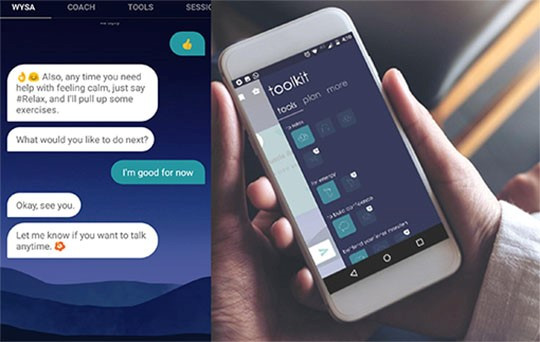
Screenshot of the chatbot in the Wysa app – Source: PCMag
The WHO estimates that an average of one in four individuals is affected by mental health issues at a given time in their lives4. This is why, in 2017, the Indian startup Wysa AI decided to enter the connected health market by developing a virtual therapist. The application digitally promotes mental and emotional well-being, featuring the Wysa Well-being Coach, based on a penguin chatbot that is available 24/7.
Users can access a library of audio content on personal development topics and the human therapist service (via messaging), all anonymously. In order to strengthen its algorithm and keep services up to date, Wysa AI works in partnership with psychologists and therapists. Available in several languages, the service is not limited to India, as the app has been downloaded by 1.7 million people in 30 different countries, with a total of 100 million conversations recorded so far (40% of users are located in the United States, United Kingdom and India)5. While it was initially adopted by younger users (24-30 years old), Wysa has also managed to earn the trust of older users (35+ years old).
In India, the Philippines and Myanmar, Forus Health is reducing the prices of ophthalmological and diabetes testing equipment
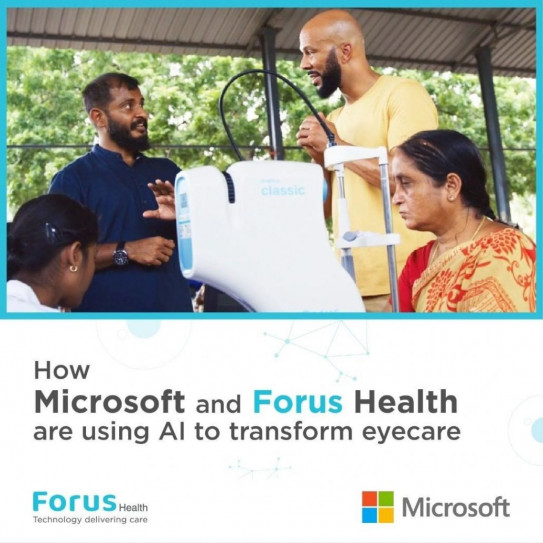
Source: Instagram @forus_health_imaging
Diabetic retinopathy is a complication that affects half of people with type-2 diabetes. According to the WHO, 19% of the 422 million diabetic people around the world are located in India, a country that is facing a shortage of ophthalmological experts, with only 20,000 experts for a population of 1.3 billion6. Since 2018, the startup Forus Health, which specialises in the development of ophthalmological devices, has been developing 3Nethra, a device that is able to screen the illness at a very young age, in order to avoid future complications and reduce the mortality rate.
By integrating AI and Microsoft Azure's Cloud capacities, 3Nethra can screen for symptoms in patients in real-time. The AI scans the image instantly and eliminates the usual lengthy process of printing images for analysis to be carried out. Furthermore, its use requires no particular expertise and its price is affordable, making it accessible.
The startup has already installed 2200 devices in 26 countries and affected 2.5 million lives7.
A selection of innovations to help fight the Covid-19 epidemic:
The digital and technological agility of Asian countries, the involvement of tech giants and the support of governments have enabled new connected health innovations to emerge and help in the fight against Covid-19. The three following innovations caught our attention.
The Alibaba algorithm that detects the coronavirus in 20 seconds
Tech giant Alibaba has developed an algorithm to analyse CT scans. It can identify the virus in 20 just seconds, compared with 15 minutes for a doctor, with an accuracy rate of 96%. The algorithm was trained using data and scans of more than 5000 confirmed coronavirus cases and uses deep learning to study infection characteristics. The system is used at more than 26 hospitals and 100 healthcare establishments in China and contributed to diagnosing more than 30,000 cases in March8.
A robot that monitors the health condition of isolated patients in Singapore
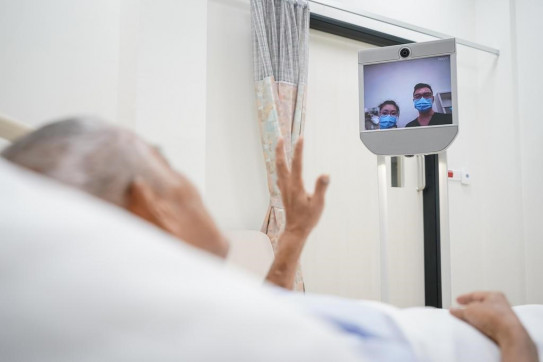
The robot BeamPro at Alexandra hospital - Source: Alexandra Hospital
The robot BeamPro was deployed in Alexandra hospital in Singapore in order to remotely monitor the health condition of isolated patients. A prototype of the robot was made three months before the beginning of the epidemic and it therefore saw its development significantly accelerated. It is fitted with a camera and screen, enabling nurses and doctors, who are visible by patients via video-conferencing, to observe them and ask questions. The robot's movements are remotely controlled by a computer. A second version is already being developed and will enable patients to communicate with the robot in four different languages.
In South Korea, AI and big data have enabled the development of test kits
Seegene, a Korean company specialised in biotechnological molecules, began research to develop testing kits as early as January 2020. Thanks to AI and big data, in less than three weeks, the company was able to contribute to the development of the first prototypes. Without this technology, the company estimates that it would have taken two to three months to develop the same kit.
In addition to the technology, the government's swiftness in introducing relevant regulations, and the medical approval of the kits, in particular through private-public partnerships, also helped make large-scale production of the kits possible. The country was therefore able to launch screening operations in its population very early on.
Conclusion Technology, including digital and artificial intelligence in particular, is an essential asset to facilitate access to healthcare and speed up the development of solutions in the sector. Asia is once again at the forefront, due to the specific characteristics of its emerging countries (such as shortages of doctors in rural areas, accessibility needs and taboos), and, in mature countries, such as Singapore, China and South Korea, thanks to governmental support, which encourages the use of technology.
